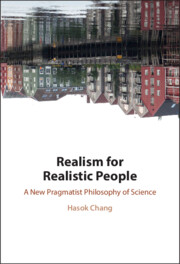Chapter 2 - Correspondence
Published online by Cambridge University Press: 08 November 2022
Summary
Before developing my ideas further I must explain why I object to the common metaphysical picture behind standard scientific realism, which I call ‘correspondence realism’: the assumption that there is well-defined reality ‘out there’ with all its constituents existing mind-independently. This picture can be put under effective critical scrutiny if we disambiguate the notion of mind-independence. All entities that we can even think about are ‘mind-framed’ (characterized in terms of some concepts supplied by the mind), but real entities are not ‘mind-controlled (they do not do as we wish). The ‘fallacy of pre-figuration’ is to mistake the lack of mind-control as the lack of mind-framing. This fallacy is at the heart of the notion of correspondence between our theories and the mind-unframed ‘world’, and the purely extensional notion of reference according to which our words simply point to pre-figured realities. Such notions are produced through a metaphorical projection of the representation relation in real practices, in which correspondence holds among mind-framed entities. In standard realist discourse in the philosophy of science the fallacy of pre-figuration is reinforced by the faith that science does give us something resembling the ultimate true picture of reality, which must be free of mind-framing.
Keywords
Information
- Type
- Chapter
- Information
- Realism for Realistic PeopleA New Pragmatist Philosophy of Science, pp. 68 - 118Publisher: Cambridge University PressPrint publication year: 2022
